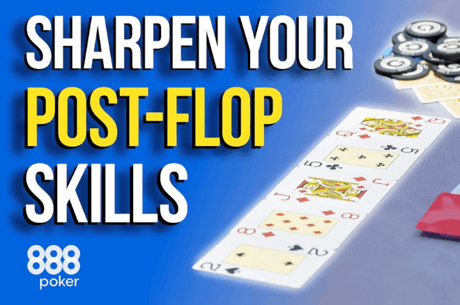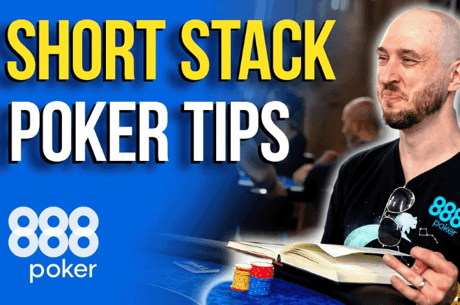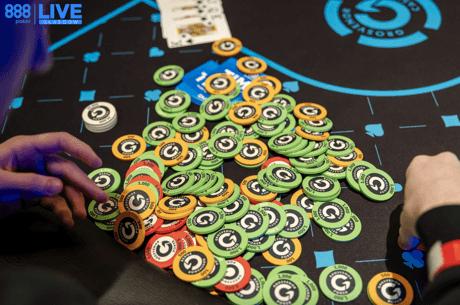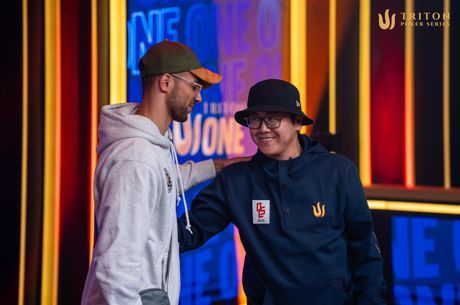Make Your Poker Game Less Exploitable with a Tip from Rock-Paper-Scissors

One of my favorite memories from my years living in Las Vegas had almost nothing to do with poker. I joined a pub trivia team. We did well enough to advance to the city-wide finals. Eleven teams were competing for three cash prizes. Even after the tiebreakers, we were tied with another team for third place. The emcee announced that it would be settled by a game of Rock-Paper-Scissors, or “Roshambo.”
You know the game, I trust. Following a count of three, two players simultaneously “throw” their choice of either Rock (a fist), Paper (a flat hand), or Scissors (two fingers), with rock beating scissors, scissors beating paper, and paper beating rock.
I had done some reading on RPS strategy, because it turns out to have some deep connections to poker strategy. One of the most basic facts is that inexperienced players tend to go Rock on their first throw. This tendency is particularly pronounced among males. (Perhaps they naively believe, like Bart Simpson, “Nothing beats Rock.”)
As our team representative stood to go to the front of the room for the contest — which consisted of just a single throw — I whispered to him, “Go with Paper.” He did. The man from the other team went Rock, per the stereotype, and we won the money.
I’m reminded of this now because I just learned of a major new piece of research on RPS. It was published in February in Nature, one of the most prestigious science journals in the world.
The study pitted human players against a computer opponent. The results can be summarized with these bullet points:
- The human players threw Rock more than Paper or Scissors.
- After a win, players tend to stay with the same selection for the next throw.
- After a loss, players tend to switch — and they preferentially switch to the choice that would have won in the throw they just lost. E.g., after playing Rock and losing to Paper, they switch to Scissors, which beats Paper.
- After a draw (when both players throw the same), players tend to switch — and again they preferentially switch to the choice that would have won in the draw. E.g., after a Rock-Rock draw, they switch to Paper, which beats Rock.
This makes perfect sense from the standpoint of basic human psychology. After feeling the sting of a loss, we don’t want to repeat it, so we make a different choice. When there are only two other options available, of course we’ll tend to choose the one that would have won if we had played it in the round just finished. It looks like a winner, so that’s what we go with. It’s also a way of feeling like we’re correcting a mistake.
With both a loss and a draw, the choice of the item that would have won is a way of soothing the psychic pain of not winning. A player regretting not having won thinks, “If only I had chosen Scissors instead, I would have won.” So of course there’s a tendency then to choose Scissors for the next throw. It feels like getting a chance to fix a mistake — to make the right choice this time, instead of what turned out to be the wrong choice before.
The basic lesson is this: When people are winning, they will tend to keep doing the same things, but when they are losing, they will tend to try something different. As you might imagine, this lesson has direct application to poker.
It’s easy to think of specific examples of sticking with a winning formula in poker. Suppose you take a flyer and call a preflop raise with 6♠5♦, get a flop of 3♣4♠7♥, and end up winning the whole stack of the guy who had put in the raise with his pocket sevens and flopped top set.
The next time you see 6x5x in your hand again, are you going to flash back to that big win? Of course you are. Are you more likely to play it again than you would have been before that experience? Unless you’re highly disciplined, yes.
Conversely, regret makes us change. You flop a flush draw, but fold to a bet. This might be because you know the bettor is one who won’t pay you off if you hit, so you’re not getting proper implied odds. Or maybe it’s because there’s a bet and raise, so you worry that even if you make your flush, you’ll lose to somebody with a bigger flush. However it happens, the hand plays out with the third card of that suit coming, and when the hands are revealed, you see that you would have won had you not folded.
You kick yourself for not staying in, right? The natural consequence of that regret is that you’ll be more likely to chase a similar draw the next time the situation arises.
The psychology works the same in a broader scope than just specific hands and specific situations. Take, for instance, the general approach of tight versus loose in preflop hand selection. We’ve all seen the “any two cards” guy go on a heater and win, win, win — followed by the almost inevitable downfall. He sticks with what had been a winning strategy until he has no more chips left.
Conversely, a player who is habitually tight but has taken some big losses is likely to change his approach, and loosen up his starting hand requirements. This is usually a losing strategy, but it’s entirely understandable. It’s almost automatic to think, “What I’m doing is not working, so I have to do something different.”
Knowing this basic fact about psychology, you have two main tasks:
1. Recognize this tendency in yourself, and actively battle against it.
It’s pure results-oriented thinking, which is poisonous to good poker decision-making.
2. Recognize this tendency in others, and exploit it mercilessly.
Frequently you’ll hear a player say something like, “I threw away jack-seven. If I had stayed in, I would have flopped trip sevens and won.” He may not know it, but he’s telling you that he’s going to play Jx7x the next time he sees it — or maybe even any hand with a 7x in it. On the other side of things, when you see somebody hit a straight draw and win a big pot, you can be reasonably confident that he will be more likely to be chasing straight draws in the near future.
This kind of predictive knowledge of how specific opponents will be playing is pure gold — and you get it from consideration of what you probably thought was just a silly children’s game.

By the way, you can play Rock-Paper-Scissors against a skilled computer opponent here. Pick the “veteran” version. It’s positively creepy, feeling how the thing is analyzing and exploiting your weaknesses, as its score inches higher and higher than yours. It’s also a worthwhile strategic exercise, because in order to beat the computer, you have to figure out what patterns of yours it is seeing, and foil its expectations. It’s much, much harder than you probably think it is until you try it.
Also, if you’re curious to read the RPS study in Nature, it’s available here: “Negative outcomes evoke cyclic irrational decisions in Rock, Paper, Scissors.”
Photos (lower): “/rock,” “/paper,” “/scissors,” hobvias sudoneighm. Creative Commons Attribution 2.0 Generic.
Robert Woolley lives in Asheville, NC. He spent several years in Las Vegas and chronicled his life in poker on the “Poker Grump” blog.
Want to stay atop all the latest in the poker world? If so, make sure to get PokerNews updates on your social media outlets. Follow us on Twitter and find us on both Facebook and Google+!










